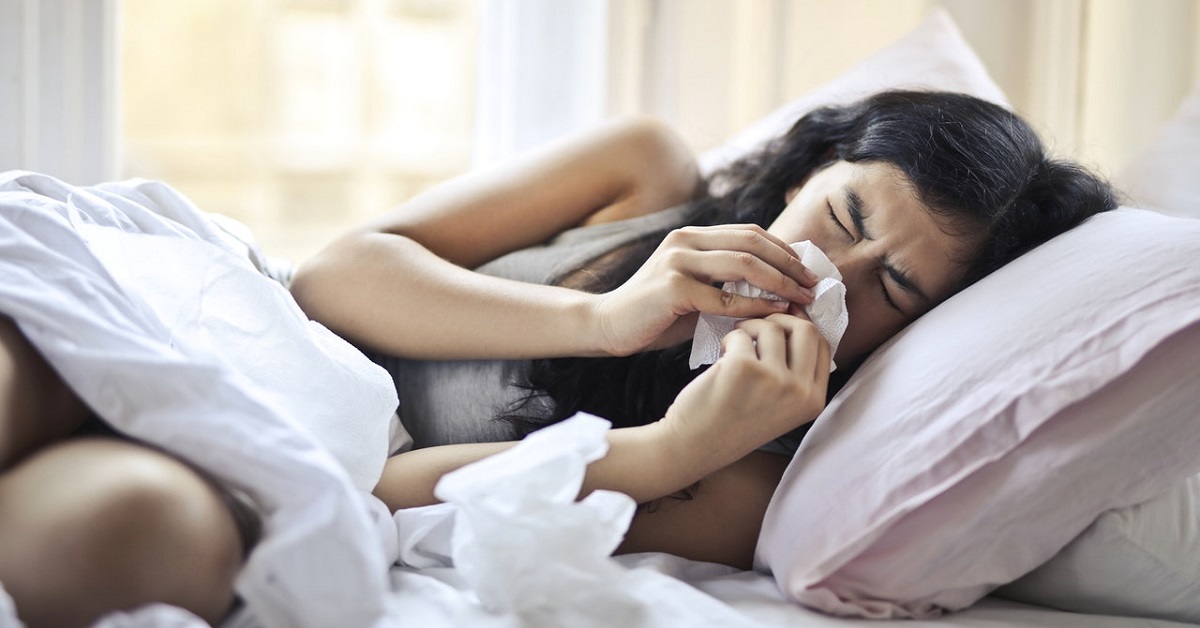//Blog
How to Prevent and Treat Hay Fever

Hay fever is an allergy condition that happens as a result of a reaction to pollen and dust. It leads to symptoms such as watery eyes, sneezing, and itchiness. It is most common between the months of March and September when the weather is warm, windy, and humid. The pollen count is at its highest levels during these months. Continue reading to find out more on how to treat hay fever today. We are here for you with treatment options available online across the UK.
Symptoms of hay fever
– Loss of smell
– Headache
– Tiredness
– Earache
– Runny or blocked nose
– Itchy, watery, or red eyes
– Itchy throat, ears, or nose
– Pain on the forehead and temples
If you are asthmatic, you may also experience:
– Chest tightening
– Shortness of breath
– Coughing and wheezing
Unlike a cold that usually lasts for about a week or two, hay fever can be experienced for up to weeks or even months.
Hay fever in infants and children
Hay fever is a widespread occurrence in children. However, the condition is rarely seen before 3 years of age. Nevertheless, it’s necessary to deal with any allergy symptoms, especially in babies and children. Serious hay fever symptoms can lead to chronic health conditions such as asthma, sinusitis, and ear infections.

How do you treat hay fever naturally?
It’s not possible to completely get rid of hay fever through the medication at the moment. However, there are certain steps you can take to minimise the symptoms when pollen levels are at their highest.
Staying indoors to avoid pollen
It’s always a good idea to stay indoors as much as possible when the pollen count is at its highest. Follow the tips listed below to reduce exposure to pollen.
– Ensure that your house doors and windows are closed.
– Keep fresh flowers away from inside your home.
– Regularly vacuum your house.
– Do not dry clothes outside if possible. This will stop pollen from gaining entry into your home through them.
– Try to damp dust in your house on a regular basis. Wet cloths are effective in collecting dust and pollen, preventing them from spreading.
– Clean your pet regularly before it enters the house to remove any pollen that may access your home.
– Avoid smoking or inhaling another person’s smoke. Smoking or breathing in someone else’s smoke will cause irritation in your nose, throat, eyes, and airways. This will worsen your symptoms in the long run.
Avoiding pollen while you are outdoors
Below are a few steps you can take to reduce exposure to pollen if you have to go outside or have to travel.
– When pollen levels are high, do not play on grass, cut grass, or camp, especially in the morning, evening, or night hours.
– Wear wraparound sunglasses to stop pollen from accessing your eyes.
– Once you return home from your outdoor activities, change your clothes and take a shower to remove any pollen and dust that you might have brought along.
– Close your car windows or install a pollen filter inside your car if possible.

How to effectively treat hay fever
Hay fever may not have any cure at the moment, but there are treatment options to minimise the symptoms that come with it.
Always keep yourself away from pollen to avoid hay fever. However, avoiding pollen can be an uphill task, especially if you frequently go outside during summer.
Over-the-counter medicines are available and can be used to control the condition. Your pharmacist may advise you to visit your GP to check if you require prescription medicine in the event your symptoms get worse.
When should I visit a pharmacist to treat hay fever?
Hay fever symptoms do not become a cause of worry when they start to show in most instances. Allergy testing is also not necessary when diagnosing hay fever.
However, you should talk to your pharmacist if you experience any of the following:
– Your symptoms last for more than a week and are becoming unbearable.
– OTC allergy medicines are not helping.
– You have another health condition, like asthma, that worsens your hay fever symptoms.
– You experience hay fever all year round.
– The side effects from allergy medicines become serious.
– You have severe symptoms.
Shop our range of products to relieve yourself from hay fever symptoms today!
We offer delivery across the UK to suit you.
This post was written on behalf of e-Medicina Pharmacy by Pharmacy Mentor
